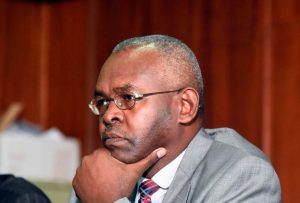
Impact Report by the Water Service Regulatory Board (WASREB), the regulatory body overseeing water services in Kenya, has revealed an increase in the number of Kenyans with access to water in 2022.
According to the Report, the average water coverage for piped water systems in regulated utilities in Kenya has risen to 62%, indicating a growth from the previous reporting period’s 60%. This increase equates to an additional 794,011 individuals who now have access to water through a water service provider.
The Report, which was officially launched by Water, Sanitation, and Irrigation Cabinet Secretary Alice Wahome, shows Kenya also made gains in drinking water quality, hours of supply, and the metering ratio. Hon. Wahome said that the Ministry is working with partners to increase investment in the sector and enable the Government achieve its goal of universal coverage by 2023.
“The Ministry has seen an influx of interested Development Partners to add voice and means to our quests to provide clean water to our citizens. We have held several bilateral talks with a delegation from the Kingdom of Saudi Arabia, where we discussed areas of cooperation to mitigate against climate change.”
The Government, through the Athi and Tanathi Water Works Development Agencies, has commissioned major projects to enhance water coverage, such as the Karimenu II Bulk Water Supply and the Mavoko Drinking Water Supply Project. These initiatives have significantly boosted the capacity of Water Service Providers in their respective areas, enabling them to better serve consumers with improved access to reliable water supply.
Kwale-based Pemba Dam, constructed in the 1980s, was also rehabilitated and now injects an additional 3000m3 per day to Kwale and Mombasa Counties, benefitting around 30,000 people or 6,000 households.Hon. Wahome added that the Ministry’s ambitious plan to increase water access via KES 1 Trillion National Water and Sanitation Investment Financing Plan (NAWASIP) was gaining traction.
“Currently, the World Bank has made commitments to finance the implementation of the rural component of the component. The Bank has financed development and implementation of several water projects in Kenya which have significantly improved access to clean water, sanitation and hygiene, and contributed to the growth of our economy.”
The NAWASIP will work under a Public-Private Partnership and is expected to result in the construction of 100 mega dams across the country.










1 thought on “Survey:Wasreb reveals 62pc Kenyans access water services”